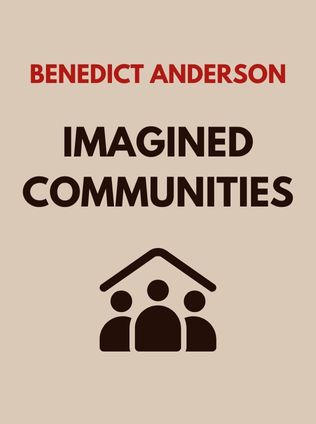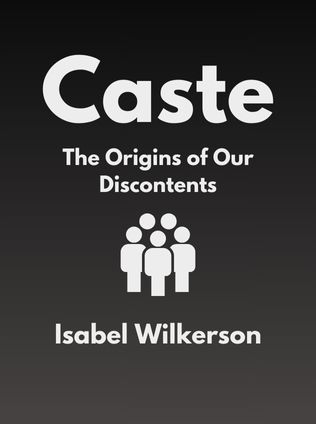
Imagined Communities
Reflections on the Origin and Spread of Nationalism
By Benedict Anderson
Published 05/1983
About the Author: Benedict Anderson
Benedict Anderson was a renowned political scientist and historian whose work left an indelible mark on the study of nationalism. Born in Kunming, China, in 1936, Anderson's life and career were a reflection of his deep engagement with global political issues. He was educated in the United Kingdom and later in the United States, where he became a professor of international studies at Cornell University. Anderson's most famous work, "Imagined Communities," published in 1983, revolutionized the way scholars understand nationalism. His argument that nations are socially constructed "imagined communities" has become a foundational concept in political science and sociology. Anderson's work transcends the boundaries of traditional historical analysis, weaving together elements of cultural studies, political theory, and history. His ability to synthesize complex ideas into a coherent narrative made his work accessible and influential far beyond the academic community.
Main Idea
In "Imagined Communities," Benedict Anderson presents a groundbreaking analysis of the origins and spread of nationalism. He argues that nations are not ancient or natural entities but rather socially constructed communities, created through the shared experiences of people who will likely never meet. Anderson's central thesis is that nationalism is a product of specific historical forces, particularly the rise of print capitalism, which allowed people to imagine themselves as part of a larger community. This imagined community, bound by shared language, culture, and historical narratives, becomes the basis for national identity. Anderson's work challenges the traditional understanding of nationalism as a natural or inevitable development and instead situates it within the context of modern history.
Table of Contents
- The Emotional Power of Nationalism
- Nations as Created Concepts
- The Pre-Nationalist Age
- Language and the Rise of Nationalism
- Modern European Nationalism
- The Challenge to the Old Dynasties
- Nationalism in the Colonies
- Nationalism vs. Racism
The Emotional Power of Nationalism
Nationalism is a uniquely powerful force in modern society, capable of inspiring deep emotional commitment from individuals. Anderson observes that nationalism often evokes feelings of love, loyalty, and a willingness to sacrifice, emotions typically reserved for the most intimate of human relationships. This power, he argues, comes from the way nations are imagined communities—large, abstract entities that people can nonetheless feel a deep connection to.
Anderson notes that "the nation is imagined because the members of even the smallest nation will never know most of their fellow-members, meet them, or even hear of them, yet in the minds of each lives the image of their communion." This imagined communion creates a powerful sense of belonging and identity, transcending the ordinary bonds of kinship and locality.
"Membership in a national community has become so central to our political thinking that some commentators have argued that nationality itself is the wellspring from which all other political, legal, and human rights flow." — Benedict Anderson
The emotional power of nationalism can be seen in the willingness of individuals to kill or die for their country. This level of commitment is rarely seen in other forms of political or ideological identity, such as allegiance to a political party or ideology. Nationalism, therefore, stands apart as the most deeply rooted and influential form of collective identity in the modern world.
- A soldier's willingness to die for their nation, despite never having met the vast majority of their compatriots.
- The deep sense of loss and mourning that follows a national tragedy, where millions grieve together as one community.
- The pride and joy experienced by citizens when their nation achieves something significant, such as winning an international sporting event.
Nations as Created Concepts
Anderson argues that nations are not natural or eternal entities but are instead created concepts, brought into existence by specific historical circumstances. The modern nation, as we understand it today, is a relatively recent development, arising in the 18th century alongside the decline of religious communities and dynastic realms.
This creation of national identity is a process of social construction, where shared language, culture, and historical narratives are woven together to form a collective identity. Anderson emphasizes that these identities are not based on any empirical reality but are imagined into being through the shared experiences of individuals who, despite never meeting, come to see themselves as part of a single, cohesive community.
"Nations are imagined communities because the nation... is imagined as both inherently limited and sovereign." — Benedict Anderson
Anderson further explores how nationalism differs fundamentally from other forms of collective identity, such as religious or racial identities. Nationalism is unique in that it constructs a single national community that transcends local and regional differences, uniting people under a shared identity that is imagined rather than empirically grounded.
- The use of national symbols, such as flags and anthems, to create a sense of unity among diverse populations.
- The role of national holidays and commemorations in reinforcing the collective memory and identity of a nation.
- The creation of national myths and origin stories that provide a shared narrative for the nation's history and purpose.
Insiders and Outsiders
One of the critical aspects of nationalism is its ability to define who belongs to the nation and who does not. Anderson argues that this process of inclusion and exclusion is fundamental to the construction of national identity. Nationalism often relies on the creation of "others" or outsiders against whom the national community is defined. These outsiders may be based on race, ethnicity, religion, or language, and their exclusion helps to solidify the boundaries of the national community.
Sign up for FREE and get access to 1,400+ books summaries.
You May Also Like
Freakonomics
A Rogue Economist Explores the Hidden Side of Everything
By Steven D. Levitt and Stephen J. DubnerI Am Malala
The Story of the Girl Who Stood Up for Education and Was Shot by the Taliban
By Malala Yousafzai



















